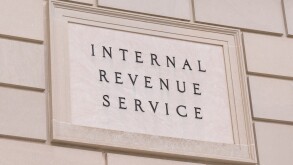Under previous VAT law, VAT applied to the sale of tangible movable and immovable property by a habitual seller. It was also levied on certain services, mentioned in Article 20 section 3 and 4 of the Chilean Income Tax Law (mainly services related to industry, commerce, mining, insurance, and brokerage).
Services consisting of technical assistance provided either by individuals or corporations were not subject to VAT, since they are included in Article 20 section 5 of the Chilean Income Tax Law and not in section. 3 and 4.
Law No. 21.420/2022
On February 4 2022, Law No. 21.420/2022 was published in the Official Gazette, which reduces or eliminates certain tax exemptions. Therefore, pursuant to Article 6 of the law, “all” services will be subject to VAT. This implies that services included in Article 20 section. 5 of the Chilean Income Tax Law (mostly technical assistance and professional services) will also be subject to VAT.
Transitory Article 8 of Law N° 21.420/2022, states that this provision will enter into force for services rendered from January 1 2023 onwards.
Law No. 21.420/2022 also mentions that “professional companies” included in Article 42 section. 2 of the Law will be exempt from VAT even if they are subject to corporate income tax. In simple terms, Article 42 section 2 provides that certain companies formed by individuals or by other professional companies can decide whether they wish to pay payroll tax or corporate income tax. Regardless of the taxation regime they choose, they can be exempt from VAT.
Characterisation as a “professional company”
Prior to the enactment of Law No. 21.420/2022, characterisation as a professional company was only relevant to determine the taxpayer’s taxation regime (corporate income tax or payroll tax). However, since 2023 it will be also important to determine if VAT is applicable to the services being rendered.
In this sense, Circular Letter No. 21/1991 and Exempt Resolution No. 1414/1978, both issued by the Chilean Internal Revenue Service (IRS), provide some guidance about the requirements in order to be characterised as a professional company. These are:
The company must not be a company by shares;
Its sole business purpose must be rendering professional services;
Services must be rendered by partners, associates or employees;
All partners must exercise its professions in favour of the company;
Partner professions must be identical, similar or complementary; and
Rather than issuing invoices, the professional company must always issue service fee documents including the phrase “professional company”.
This is a big change in terms of VAT applicable to professional services, and we are already seeing some companies reorganising in order to qualify as a professional company. Certainly, this new (old) concept will cause a certain level of discussion with the tax authorities.











